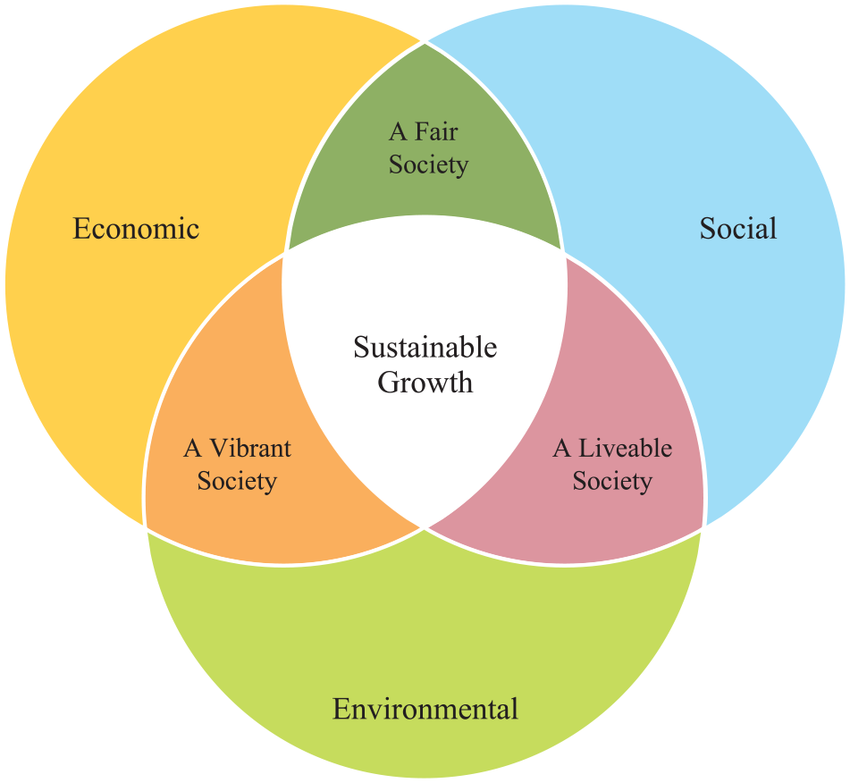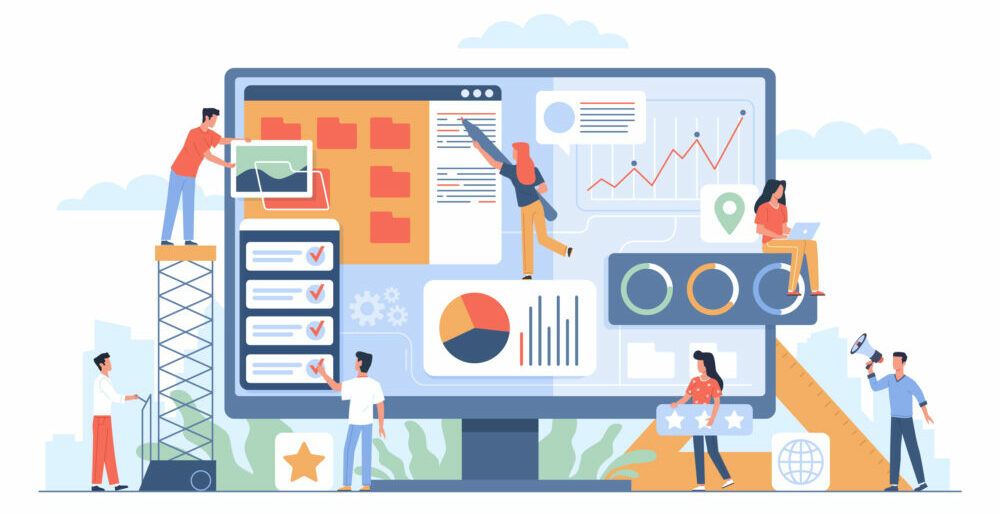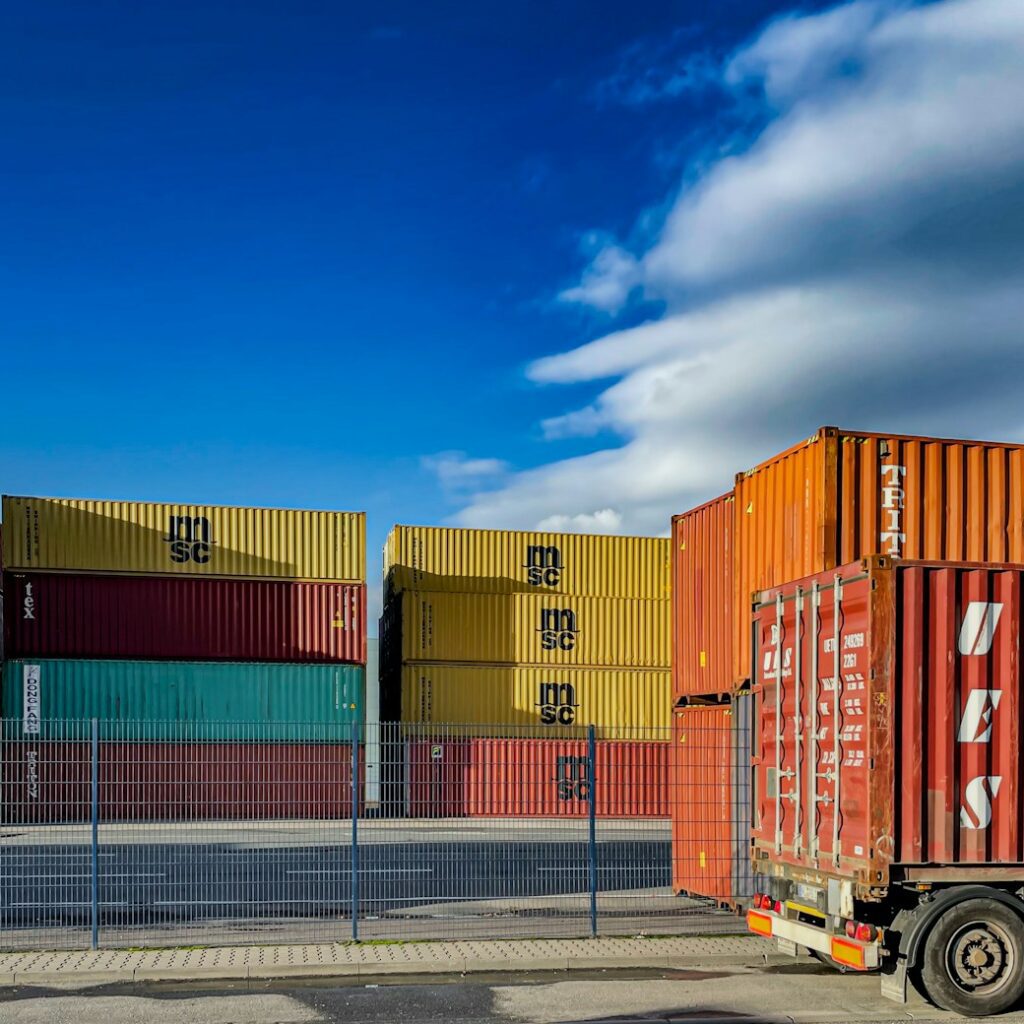How to Choose the Right Business Sustainability Platform for Your Brand


Ezekiel Muoneke
Content Writer
- Blog
- September 10, 2023
- 11:00 pm
Picture this…
You’re standing at the entrance of a vast and intricate maze, surrounded by towering walls covered in ivy. The sun shines brightly overhead, casting dappled shadows on the ground. It’s a challenging journey that mirrors the quest for sustainable business practices, and the stakes are high for your company’s future.
As a business owner, you aspire to do more than just turn a profit. You’re determined to contribute positively to the environment and society while boosting your bottom line and reputation. Sustainability isn’t just a buzzword; it’s your moral obligation and a competitive edge in today’s market.
Your goal is clear: align your business strategy with the United Nations’ Sustainable Development Goals and the Paris Agreement on climate change. You want to measure and enhance your environmental, social, and governance (ESG) performance while maintaining transparency and credibility. You aim to be a part of the solution, not the problem.
But, much like navigating the complex pathways of the maze, you face a perplexing challenge. How do you choose the right sustainability platform that will guide your company towards a greener future? How do you avoid greenwashing while ensuring your commitment to sustainability shines through?
In this article, we’ll guide you through the intricate landscape of sustainability standards, frameworks, tools, and platforms. Just as you would navigate the maze’s twists and turns, we’ll help you find your way towards a sustainable future for your business, offering you relatable human experiences and real-world case studies to shed light on this crucial decision-making process.
The Essence of Sustainability Platforms


Before we dive headfirst into the maze, let’s solidify our understanding of the basics. Sustainability platforms are the multifaceted tools and strategies that companies employ to monitor, manage, and enhance their environmental, social, and economic impacts. In this context, think of them as your North Star on the sustainability journey.
These platforms aid businesses in identifying and prioritizing their environmental, social, and governance (ESG) concerns, setting SMART (specific, measurable, achievable, relevant, and time-bound) sustainability goals and targets, tracking progress, benchmarking performance against industry peers and best practices, and communicating results to internal and external stakeholders.
Moreover, a business sustainability platform can integrate with other business systems and data sources, such as enterprise resource planning (ERP), customer relationship management (CRM), supply chain management (SCM), accounting, and human resources (HR). It supports various sustainability standards and frameworks, including the Global Reporting Initiative (GRI), the Carbon Disclosure Project (CDP), the Task Force on Climate-related Financial Disclosures (TCFD), the Sustainability Accounting Standards Board (SASB), and the International Integrated Reporting Council (IIRC).
The Path Ahead: Types of Sustainability Platforms
As you venture deeper into the maze, you’ll encounter numerous intersections and branching paths, each representing a different aspect of sustainability. Choosing the right platform can indeed be bewildering. To make an informed decision, start by evaluating your company’s unique sustainability needs. Are you primarily interested in reducing carbon emissions, managing your supply chain ethically, enhancing employee well-being, or perhaps all of the above?
To this end, there are various types of sustainability platforms to choose from, each offering a different route through the maze. Let’s explore five of them:
- ESG (Environmental, Social, and Governance) Software
Imagine you come across a signpost that reads “ESG Path.” This path is dedicated to improving your company’s environmental impact, social responsibility, and corporate governance. ESG software helps you measure and report on these aspects, aligning your business with sustainable practices.
- CSR (Corporate Social Responsibility) Platforms
This route focuses on your company’s social and ethical responsibilities. CSR platforms enable you to engage with your community, support charitable causes, and create a positive impact.
- Sustainability Reporting Tools
These platforms are your key to transparently communicating your sustainability efforts to stakeholders, investors, and customers. They help you compile data, create reports, and showcase your progress.
- Employee Engagement Platforms
Your workforce plays a significant role in your sustainability efforts. These platforms empower your employees to actively participate in sustainability initiatives, fostering a culture of environmental and social responsibility within your organization.


- Supply Chain Sustainability Solutions
If your company relies on a complex supply chain, these platforms are vital. They allow you to trace the environmental and social impacts of your supply chain and make informed decisions to reduce risks and improve sustainability.
Key Features to Seek in a Business Sustainability Platform
While no one-size-fits-all solution exists, some common features to look for in any business sustainability platform include:
- Data Management: Capabilities to collect, validate, and standardize data from various sources and levels in a secure manner
- Data Analysis: Tools for analyzing data, generating insights, and conducting scenario analysis and what-if simulations
- Data Monitoring: Real-time or near-real-time monitoring with alerts and notifications to track performance and address anomalies
- Data Reporting: Flexible reporting options supporting different formats and sustainability standards, customizable to your needs
- Data Integration: Ability to integrate with other business systems and external platforms, providing a comprehensive view of performance
- Data Security: Ensuring data security, privacy, and compliance with relevant regulations and standards
The Burden of Choice: Comparing Different Business Sustainability Platforms
Now that you have a map of the maze, let’s equip you with a compass to navigate it effectively. Consider the following factors when choosing your sustainability platform:
~ Functionality: Assess how well the platform meets your functional requirements and if it offers unique or innovative features.
~ Usability: Consider the platform’s user-friendliness, interface, design, and available training and support.
~ Reliability: Evaluate performance, availability, scalability, technical issues, and backup and recovery systems.
~ Affordability: Determine the cost, pricing structure, discounts, incentives, and any hidden fees or charges.
~ Sustainability: Examine the platform’s own environmental, social, and governance impact and its support for related causes or initiatives.
~ Cost vs. ROI: Evaluate the platform’s cost against the potential return on investment. While budget constraints are real, remember that sustainable practices can yield long-term financial benefits.
~ Ease of Use: Opt for user-friendly interfaces to encourage engagement across your organization. Sustainability platforms should empower your team, not create hurdles.
Case Studies: Real-World Success Stories
To illustrate the effectiveness of these platforms, let’s delve into a couple of real-world case studies:
~ Microsoft: Microsoft employs its own business sustainability platform, Microsoft Cloud for Sustainability, to manage ESG data. It measures and improves its environmental impact, and it helps customers and partners achieve their sustainability goals.
~ Patagonia: Patagonia uses Sourcemap to manage its ESG data and supply chain transparency. It monitors risks and impacts and helps suppliers and customers in their sustainability efforts.
~ Unilever: Unilever utilizes EcoVadis to assess and enhance its ESG performance. It benchmarks against industry peers and supports sustainability goals in its supply chain.
ENJOYING THE ARTICLE?
Sign up For Our Newsletter
Conclusion: Finding Your Way


As you journey through the maze of sustainability platforms, remember that there’s no one-size-fits-all solution. Your path may involve a combination of ESG, CSR, reporting tools, supply chain solutions, and employee engagement platforms, all tailored to your company’s unique needs.
In the end, the perplexity of the maze will be worth it, as choosing the right sustainability platform can lead your company towards a brighter, more sustainable future. So, step confidently into the maze, armed with knowledge and a sense of purpose, and let your sustainability journey begin.
Don't just exist online; thrive! Partner with us to create a digital marketing strategy that will take your business to new heights. Say goodbye to mediocre results and hello to digital success—contact us today to get started!
Share this article
Ready to accelerate your company's brand transformation?
We look forward to getting to know you, talking CX, and (our favorite part) learning how we can make your life easier.











